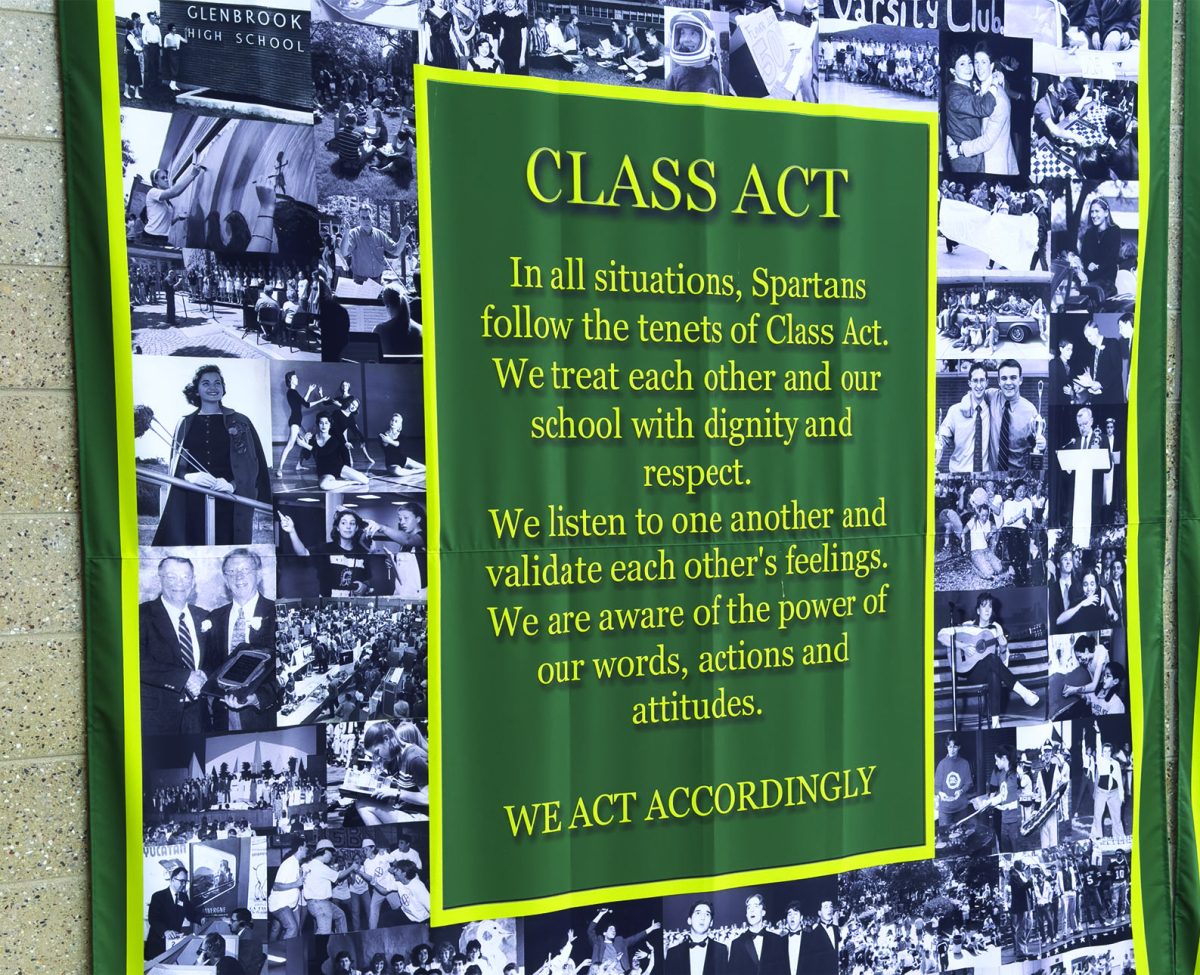An email was sent from Glenbrook North administration to students and families on Jan. 29 addressing the discovery of an antisemitic message and symbol graffitied on an unassigned gym locker. A separate communication was sent on Feb. 24 reporting an incident in which a racial slur was used in an encounter between students off campus.
“We want to make sure that we are thoroughly addressing concerns when they come up, and that we are making sure that we’re providing proper educational resources, that we’re providing social-emotional resources and that we’re really being clear about what is appropriate here and what is not tolerated,” principal Mandy Hughes said.
According to Rebecca Weininger, deputy regional director of the Anti-Defamation League, hate speech can be defined as language that expresses bias or hate toward another person based on that person’s protected class, including sex, sexual orientation, ethnicity, religion, national origin and gender identity.
“There’s a ripple effect that radiates out to all of the people that have that same identity, and then the truth of the matter is, it then ripples out to the rest of the community because the active practice of hate is toxic,” Weininger said.
According to Hughes, when preparing to notify the community about a local hate speech incident, administration considers if the incident has a broader reach with the potential to impact many students and maintains student confidentiality when providing details regarding individuals impacted.
“We try to strike that balance of being clear enough to provide reassurance, to make sure that we are setting clear expectations of what is not tolerated here and to acknowledge that we are providing a response,” Hughes said.
When responding to incidents, the district tries to clarify what took place without repeating the language used, Hughes said.
“I know how impactful words are … We’re trying not to retraumatize by also then restating the exact description of everything,” Hughes said.
According to Weininger, school responses to hate speech must employ both swift and consistent enforcement, reinforcing that hate speech is unacceptable, regardless of the group affected.
“It can’t be more important that somebody was outed [or someone] deadnamed a transgender student than it is that someone practiced Islamophobia,” said Weininger. “This is all hate. It all needs a swift, prompt response, and [that response] needs to be consistent across all kinds of hate.”
According to Hughes, if students themselves encounter or witness others experiencing hate speech, they are advised to talk to the deans, but if students are uncomfortable with doing so, they may also speak to another staff member such as a school counselor, coach or teacher.
“We’ve been really reiterating to our staff, too, that when students approach them with these concerns, that we want our school staff to be the connecting point back to our deans to help really sort through and make sure that we are getting to the heart of the matter,” Hughes said.
Students can also submit a confidential Spartan Concern Form that is shared with administrators or message the Text-a-Tip line, which gives students 24/7 access to trained mental health professionals. Both tools can be found on the GBN website.
“We know that there’s always things that we can improve in terms of how our students interact with each other, about how we respond to each other, and so therefore I believe it’s one of my greatest responsibilities as the principal to communicate what are those expectations and to find ways to reiterate them all the time,” Hughes said.
Editor’s Note: Publication deadlines prevented Torch from including information about a recent event that Principal Mandy Hughes notified the GBN community about in an email on April 4.


